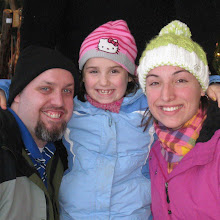Almost a year has passed since my last blog post. A thought occurred to me just now that motivated me to resurrect this blog, if only to keep this thought from fading from my mind forever.
Today, my husband told me that he overheard "the hens", as he calls them, bragging about their social status during our daughter's gymnastics class. Apparently, several of the parents that bring their children to gymnastics during our daughter's Monday morning classes are stay-at-home moms who have nothing better to do than gossip with the other snotty moms who also have nothing better to do.
My husband is the only father who brings a child to the classes and he often comes home telling me stories about what "the hens" were gabbing about that morning. One time, he came home to tell me that one of the mothers was complaining about having too many baby strollers. She had five - a full-size stroller, an umbrella stroller, a double stroller, a running stroller, and a double running stroller. Her dilemma was not where to store them, or whether to donate to Goodwill or sell a few on Craigslist, but simply that she had so many. In other words, she was concealing her boasting through complaining.
This time, my husband came home to tell me that two "hens" in particular were going back and forth about their choice of lifestyles. One woman was a surgeon's wife and was bragging about their luxurious home in Falmouth. The other was an R.N. at the same hospital but told the first that her and her husband had decided to live in Westrbook because they felt their children would benefit from being exposed to both the "Haves" and the "Have-Nots". This way their children could see how the "Have-Nots" lived and appreciate how they lived more. This disturbed my husband, but I just rolled my eyes.
I grew up in an extremely diverse city in Massachusetts. It was diverse in several ways. Race was the obvious one; I grew up with racial diversity and just assumed that was how the entire country lived as well. My neighbors were Hmong, I sat in church next to Brazilians, and my first date to a semi-formal happened to be Puerto Rican. I didn't know when I moved to Maine and met my husband that his adopted brother would turn heads everywhere we went because it was so rare to see a "colored" person. I sat aghast at my husband when he explained to me why his brother kept getting turned down job after job; because no one around here wanted to hire a black boy.
I grew up surrounded by other diversities, though. I had several friends that were homosexual when I was growing up - way before "coming out of the closet" was anywhere near as accepted as it is now. One of my best friends was gay - I had a terrible crush on him in high school but since I had no chance with him in that way, we became good friends. We were religiously and culturally diverse. And yes, income was another area of diversity. However, I don't remember ever once having income play a factor in how I thought of someone else, nor did I ever feel that I was ever thought of differently because of my parents' income.
However, now that I look back on it, I can see that there were several people in my circle of friends that could have been classified as the "Haves" and several, including myself, that could have been described as the "Have-Nots". But you know what? It didn't matter. At all. Having money didn't make any one of us get good grades or poor grades. It didn't play a factor in whether we drank or tried drugs or not. It didn't determine which college we went to, or if we went to college at all. And it certainly didn't determine our happiness for us. But you know what did? The relationships we developed between each other and with our family, teachers, and other adults affected each and every one of those outcomes.
My point: It doesn't matter if you drive a Jag, a mini-van, a 1985 Ford Escort, or ride a bike. It doesn't matter if you live in a trailer, a house, a condo, or a mansion. It doesn't matter if you end up being the surgeon, the nurse, the patient, or the guy who mops the floor after the surgery is over. There are only two things that really matter in this life. What matters in life is what you do with what it gives you and how you treat the people in it. Nothing else matters.
Monday, May 3, 2010
Subscribe to:
Posts (Atom)
